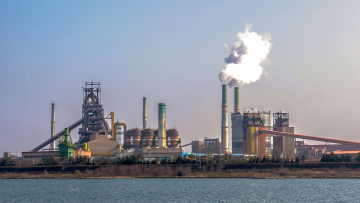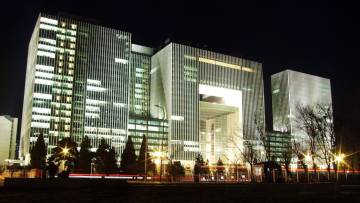Three years after attempted coup, international banks still ignore the junta’s violent capture of the Myanmar-China pipelines
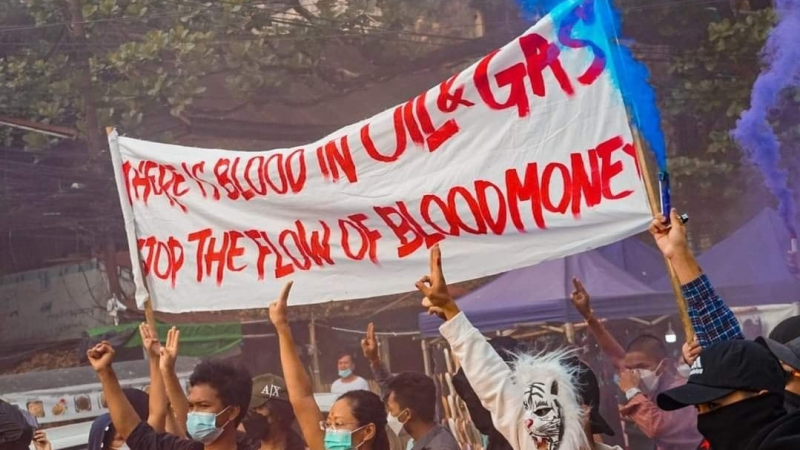
This story was produced in collaboration with local partners who can not be named for safety reasons.
February 1st 2024 marks the third anniversary of the attempted coup d’etat by the Myanmar military junta. The military junta has inflicted extreme suffering on the people of Myanmar and has caused a humanitarian and economic crisis. The constant and mass resistance to the military’s attempted coup and efforts to build a federal democracy has been met with severe repression and retaliation by the junta, which can count on a large and reliable source of revenue from Myanmar’s oil and gas infrastructure.
Among the oil and gas infrastructure fueling the military junta, are the Myanmar–China Oil and Gas Pipelines—the largest energy infrastructure in Myanmar. The pipelines begin in Rakhine State, southwest Myanmar, transverse the country’s heartland, and enter Yunnan, China from northeastern Shan State. The project is operated by a subsidiary of the China National Petroleum Corporation known as Southeast Asia Pipeline Co. Ltd. (CNPC-SEAP). The oil pipeline is owned by CNPC-SEAP and state-owned enterprise Myanma Oil and Gas Enterprise (MOGE), while the gas pipeline is owned by CNPC-SEAP, POSCO, MOGE, GAIL, Korea Gas Corporation (KOGAS) and Oil and Natural Gas Corporation (ONGC). CNPC purchases 80 per cent of the gas from the Shwe gas project, which is transported through the pipeline, with the remainder used for domestic purposes.
Construction of the pipelines began during Myanmar’s military-controlled political and economic reforms, which ended when the military initiated an attempted coup on February 1, 2021.
Since its attempted coup d’état, the Myanmar military has seized control of the lucrative oil and gas sector. In 2019, the oil and gas industry contributed US$ 1.5 billion to the Government of Myanmar, according to figures from the Extractive Industry Transparency Initiative. By illegally seizing the agencies responsible for collecting oil and gas revenue, including MOGE, the junta receives payments from gas sales, pipeline dividends and taxes made by companies, as well as a split of the profits from the state’s share in oil and gas projects. A significant portion of this is from the Shwe gas project and connected Myanmar-China oil and gas pipelines.
For the 2023-2024 fiscal year, the military junta estimated revenues from its gas export to reach over US$ 2.4 billion, with earnings from April to June 2023 amounting to US$ 841.7 million. It is estimated that MOGE’s gas projects generate over US$ 1 billion annually. The junta relies on oil and gas revenue to fund a campaign of terror that has displaced an estimated 2.3 million people since the attempted coup. The junta has murdered over 4,400 people, with nearly 26,000 arrested since February 1st 2021. In response to its role in financing the junta’s crimes, the EU sanctioned MOGE in February 2022, and the US prohibited financial services to it in October 2023.
Torture is routine. According to the first comprehensive report published by the UN High Commissioner for Human Rights office since the 2021 attempted coup, the Myanmar military junta has committed “widespread and systematic attacks against civilians in patterns of conduct that may amount to crimes against humanity.”
For communities in the path of the pipeline, abuses were a fact of life before the coup attempt. At its coastal southern hub of the pipeline, on Ma-De Island, the pipeline resulted in land confiscation that affected the majority of residents. Fearing repression by the junta, many remained silent.
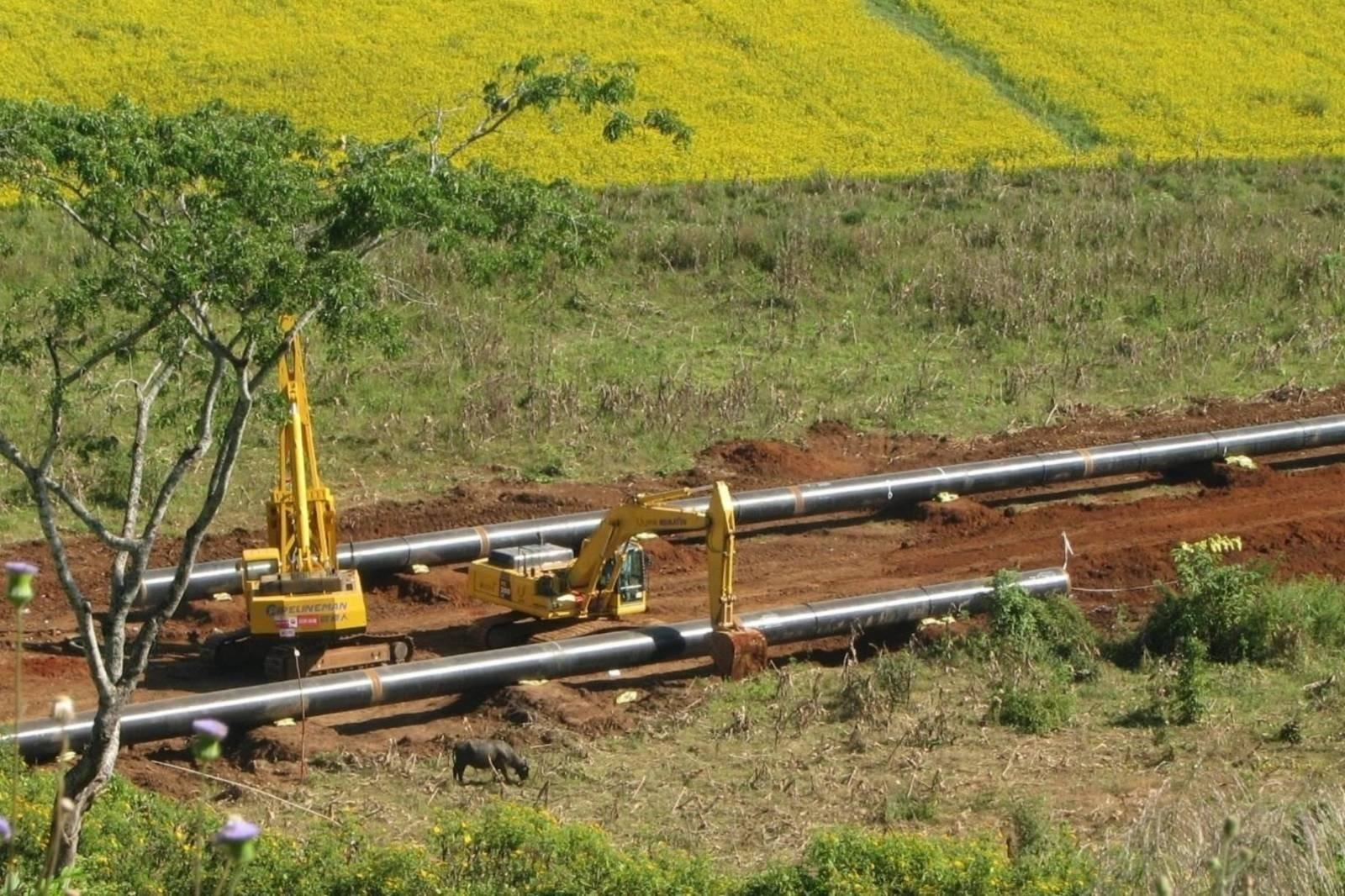
During construction, military attempts to secure the pipelines’ path through ethnic minority territories led to increased violent conflict and displacement. The pipelines’ construction has disrupted livelihoods and harmed indigenous communities. The Myanmar China Pipeline Watch Committee (MCPWC) reported that the pipeline project has caused environmental damage in 21 townships.
Since February 2021, the junta has moved to further militarise the pipeline route in a bid to ensure the profits continue to flow. One brutal strategy has been to plant landmines on parts of the route. The lives of local villagers, whose livelihoods depend on farming and collecting firewood on land near the pipeline are at grave risk. Most recently, in January 2024, in the area of the township of Hsipaw, two farmers lost their lives in separate incidents, accidentally stepping on a landmine while looking for their cattle.
After the resistance armies launched an unprecedented offensive in Shan state on October 27th, 2023, the military resorted to indiscriminate shelling and airstrikes to retaliate. In Northern Shan state, in the townships of Namtu, Hsipaw, Kyaukme, and Nawngkhio, the military’s aerial bombs and shells have landed dangerously close to the pipelines, raising local fears of catastrophic explosions. The military also targeted villages along the pipelines’ routes where no fighting was taking place between junta forces and the resistance. These indiscriminate and unjustified attacks resulted in numerous civilian deaths.
Among the main shareholders of the Myanmar-China pipelines are CNPC, POSCO, ONGC, and KOGAS, bankrolling the military junta’s atrocities. In 2022 alone, these four companies together received nearly US$ 7.3 billion in corporate finance, with CNPC receiving the most with nearly US$ 6.7 billion. Some of their biggest and most recent financiers are ICBC, Bank of China, Agricultural Bank of China, Mizuho, KB Financial, UBS, Citi, State Bank of India, SMBC, JP Morgan Chase, Bank of America, BNP Paribas, and HSBC. Despite the Myanmar people’s rejection of the junta and its well-documented commission of war crimes and crimes against humanity, the pipeline shareholders have shown little willingness to stop payments to the junta and place the government of Myanmar into an escrow account, or move their business out of Myanmar.
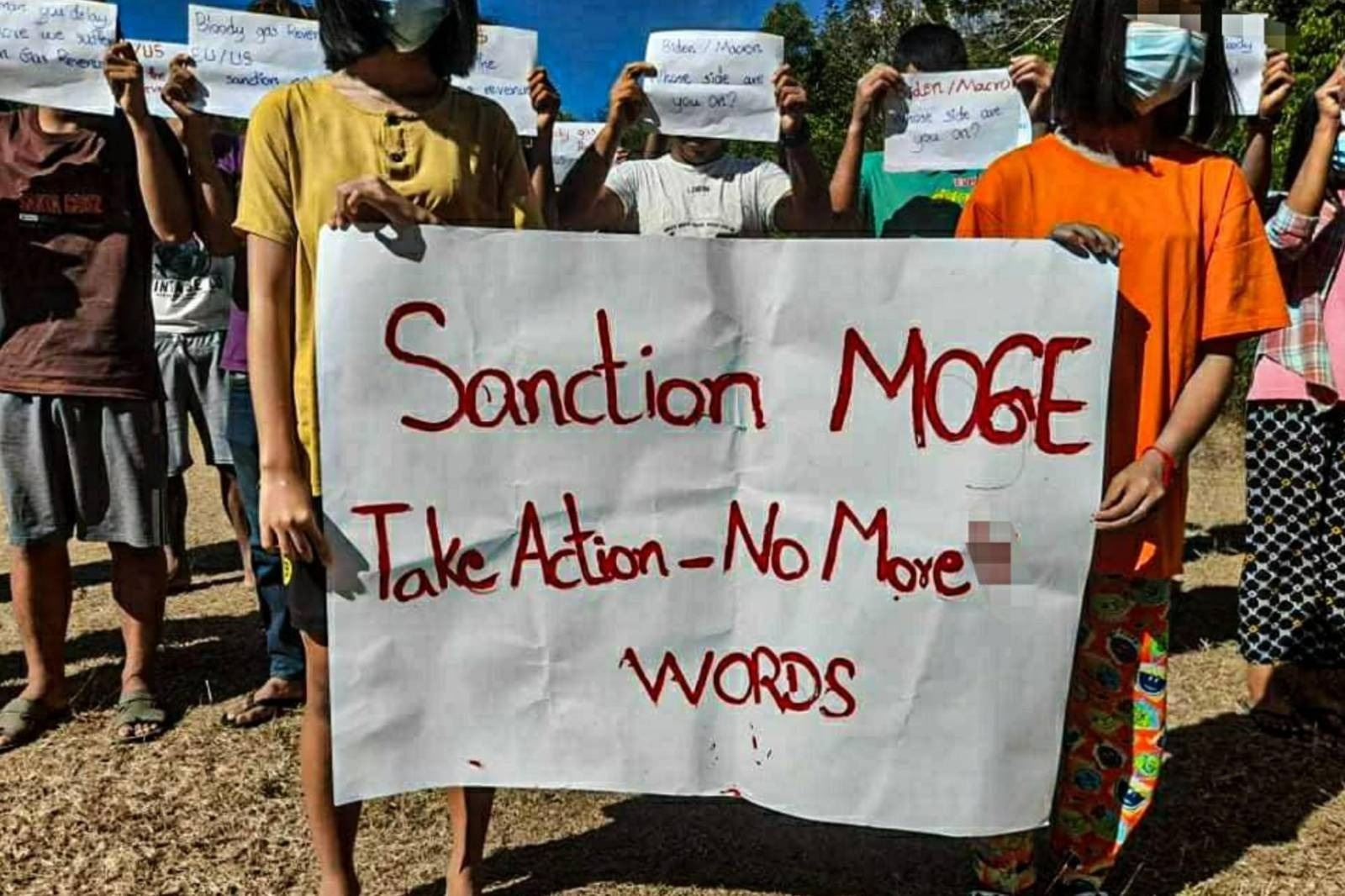
By continuing to provide finance to companies with ties to the military junta, banks are contributing to the international crimes and atrocities being perpetrated by the military. The OECD Guidelines for Multinational Enterprises and the UN Guiding Principles on Business and Human Rights both clearly set out that international investors, including banks, have a responsibility to use their leverage to ensure their clients act to prevent or mitigate human rights abuses. The banks must therefore urge these companies to immediately cease all payments to the military junta and its associated companies, or responsibly disengage, and to divest from companies that fail to act.
By failing to act, banks are prolonging the suffering of Myanmar people. The people of Myanmar will prevail.
Follow groups who are campaigning to cut fossil fuel funds to the junta and demanding sanctions on Myanma Oil and Gas Enterprise to see what you can do:
Blood Money Campaign: facebook.com/BloodMoneyCampaignMM
Burma Campaign UK: burmacampaign.org.uk
Justice for Myanmar: justiceformyanmar.org
Earth Rights International: earthrights.org
International Campaign for the Rohingya: rohingyacampaign.org

